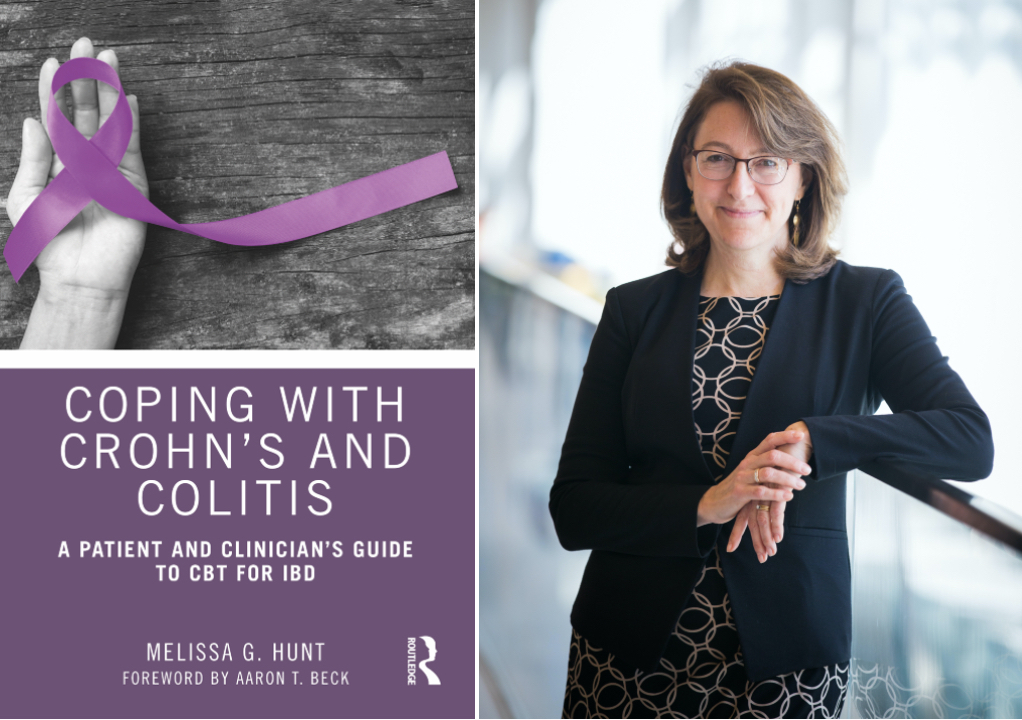Crohn’s disease self-care includes eating a healthy diet, getting enough rest and exercise, managing stress, avoiding smoking and drinking alcohol. Eating a balanced diet with foods that are easy to digest can help reduce symptoms of Crohn’s disease. Getting adequate rest and exercising regularly is important for overall health.
Managing stress levels through activities such as relaxation techniques or yoga can also be beneficial in reducing symptoms of Crohn’s disease. Avoiding smoking and drinking alcohol is advised as these substances may worsen the condition. Additionally, some medications may be prescribed by a doctor to manage inflammation or other complications associated with Crohn’s Disease.
When it comes to managing Crohn’s Disease, self-care is essential. Taking the time to rest, eat a healthy diet, exercise regularly and manage stress levels can help reduce symptoms and keep flare ups under control. Additionally, it is important to attend regular doctor’s appointments and follow your medication regimen carefully in order to stay on top of your condition.
By taking the necessary steps for self-care each day you can help ensure that your Crohn’s Disease remains well managed.
How Do You Take Care of Yourself With Crohn’S Disease?
Living with Crohn’s disease can be a challenge; however, there are ways to take care of yourself and manage your symptoms. It is important to have regular check-ups with your doctor in order to monitor the progress of the disease and ensure that you are on the right track. Additionally, it is important to maintain a healthy lifestyle by eating a balanced diet full of nutrients and getting enough exercise.
Developing an exercise routine can help reduce stress levels which can worsen inflammation caused by Crohn’s disease. Furthermore, it might also be beneficial to speak with a therapist or support group if you feel overwhelmed or need emotional support during difficult times. Finally, taking time for self-care activities such as meditating or spending time in nature can also help you better cope with the challenges posed by living with Crohn’s disease.
Although managing this condition may seem overwhelming at times, staying informed about how best to take care of yourself will make it easier over time!
Is There a Natural Way to Heal Crohn’S Disease?
Crohn’s disease is an inflammatory bowel disease that affects millions of people around the world. It can be extremely debilitating, causing severe abdominal pain and diarrhea as well as weight loss and malnutrition. Unfortunately, there is no known cure for Crohn’s disease yet.
However, many natural treatments may help to reduce symptoms and improve quality of life for those with this condition. These include dietary changes such as reducing consumption of processed foods or increasing intake of certain nutrient-dense foods like fruits, vegetables, nuts, seeds and healthy fats; probiotics to restore gut bacteria balance; stress management techniques such as yoga or meditation; lifestyle modifications including regular exercise and adequate sleep; herbal remedies like aloe vera juice or chamomile tea; acupuncture or acupressure therapy; supplementation with vitamins D3 and B12 among others. All these approaches have shown some degree of success in treating Crohn’s disease but it is important to remember that each person responds differently so what works for one person might not work for another.
What Helps Soothe Crohn’S Disease?
Crohn’s disease can be a difficult condition to manage; it can cause severe abdominal pain, nausea, fatigue and diarrhea. Fortunately, there are many things that can help soothe the symptoms of Crohn’s disease. Making lifestyle adjustments is often the first step in managing Crohn’s disease as diet and stress levels play a large role in regulating inflammation associated with the condition.
Eating smaller meals more frequently throughout the day helps reduce gastrointestinal distress while avoiding certain foods such as dairy products, fried food and processed meats may also help reduce discomfort. In addition to dietary changes, exercise has been shown to improve health outcomes for those living with Crohn’s by helping regulate digestion and reducing stress levels which tend to worsen symptoms. To further ease discomfort due to cramping or bloating, relaxation techniques such as yoga or meditation have proven beneficial for some people living with Crohn’s Disease.
Finally, speaking with a doctor about prescription medications may provide additional relief from pain or other uncomfortable side effects associated with this condition.
What Should Crohn’S Patients Avoid?
Crohn’s Disease is a chronic inflammatory bowel disease that affects millions of people around the world. Unfortunately, there is no single treatment for Crohn’s and managing flare-ups can be difficult. One of the best ways to manage flare-ups is by avoiding certain food and drinks that can trigger symptoms.
Foods such as dairy products, processed meats, fried foods, high fiber foods (such as nuts and seeds), spicy foods, alcohol and caffeine should all be avoided or reduced significantly in order to reduce inflammation in the intestine. Additionally, it’s important to drink plenty of fluids such as water to help with digestion while also reducing any potential dehydration caused by diarrhea or vomiting associated with Crohn’s flares. In addition to dietary changes, stress management techniques like yoga or meditation can reduce overall inflammation related to this condition.
Ultimately, each individual must find what works best for their own situation when managing Crohn’s flares but following these guidelines will likely provide some relief from symptoms and allow sufferers of this disease live more comfortably on a daily basis.

Credit: penntoday.upenn.edu
Foods to Avoid With Crohn’S Disease
It is advisable for people with Crohn’s Disease to avoid foods that are high in fat, as well as processed and fried foods. These types of food can be difficult to digest and can cause inflammation in the digestive tract. Other foods to limit or avoid include dairy products, raw fruits and vegetables, whole grains such as wheat bran, spicy foods, caffeine-containing beverages and alcohol.
Eating a balanced diet tailored to your individual needs is essential for managing symptoms associated with Crohn’s Disease.
How to Test for Crohn’S Disease
Testing for Crohn’s Disease requires a combination of diagnostic procedures, including blood tests, imaging studies such as an MRI or CT scan, and sometimes even biopsies. The most accurate way to diagnose the condition is to observe inflammation in the digestive tract with a colonoscopy or endoscopy. A stool sample may also be taken to test for markers of inflammation that indicate Crohn’s disease.
It is important to make sure all other possible causes are ruled out before making a definitive diagnosis of Crohn’s disease.
Crohn’S Disease Medication
Crohn’s disease is a severe inflammatory bowel disorder that can cause a variety of symptoms, including abdominal pain, diarrhea, fatigue and weight loss. Medication is an important part of managing Crohn’s disease. Common medications used to treat Crohn’s include anti-inflammatory drugs such as corticosteroids and aminosalicylates; immunomodulators to weaken the body’s immune response; antibiotics to treat infection; biologic therapies targeting specific proteins in the immune system; and certain nutritional supplements.
Each patient may require different combinations or dosages of medications depending on their individual condition and symptoms.
Crohn’S Disease Medical Procedure
Crohn’s Disease is a chronic inflammatory condition that affects the gastrointestinal system, and in order to treat it doctors may recommend medical procedures such as endoscopy or colonoscopy. Endoscopies allow doctors to examine the digestive tract with a thin tube containing a small camera, while colonoscopies involve using this same device to look further inside the large intestine. Both of these tests are used for diagnosis and can also be done if there are any signs of Crohn’s flare-ups.
Additionally, surgery may be recommended if medications or other treatments aren’t effective enough at relieving symptoms.
Crohn’S Disease Symptoms Test
Crohn’s Disease is a chronic inflammatory bowel disease (IBD) that affects the gastrointestinal tract. The symptoms of Crohn’s Disease vary between individuals, but they typically include abdominal pain and cramping, diarrhea, fatigue, weight loss and malnutrition. To diagnose Crohn’s Disease accurately, your doctor may perform a variety of tests including blood tests to check for inflammation markers; x-rays or endoscopies to look at the lining of your intestines; and stool samples to test for infection.
If these tests are inconclusive, your doctor may order more specialized testing such as an MRI or CT scan to get further information about what’s going on inside your body.
Tricks to Living With Crohn’S Disease
Living with Crohn’s Disease can be challenging, but there are some tricks you can use to help manage your condition. Eating a balanced diet high in fiber and low in fat is important to help reduce inflammation and ease digestion. Getting regular exercise, managing stress levels, avoiding smoking and drinking alcohol, and taking medications as prescribed by your doctor are also key components of successful Crohn’s disease management.
Additionally, having good communication with your doctor about any changes or concerns can ensure that your treatment plan is tailored to address all of your needs.
Crohn’S Disease Life Expectancy
Crohn’s disease can range from mild to severe, and its effects are different for everyone. Generally, life expectancy is not decreased with Crohn’s disease; however, it depends on the severity of the condition. People who have mild cases may live a normal lifespan while those with more serious cases might experience complications that reduce their life expectancy.
The best way to ensure a longer and healthier life with Crohn’s disease is to work closely with your doctor or healthcare team and follow their treatment plan.
What Causes Crohn’S-Disease
Crohn’s disease is an inflammatory bowel disease that affects the digestive system, and its cause is not currently known. However, research suggests that a combination of genetic factors and environmental triggers may be involved in the development of Crohn’s Disease. An abnormal immune response to a virus or bacteria in the gastrointestinal tract has also been suggested as a possible cause of this condition.
Additionally, lifestyle factors such as smoking, diet, stress levels and certain medications are thought to play a role in increasing one’s risk for developing Crohn’s Disease.
Conclusion
Overall, Crohn’s Disease self-care can be an effective way to manage symptoms and improve quality of life. It is important to have a plan in place that includes a balanced diet with plenty of fruits and vegetables, regular physical activity, stress management techniques such as meditation or yoga, and proper medical care. By incorporating these strategies into your daily routine, you will be able to better manage the symptoms associated with Crohn’s disease and live more comfortably.




